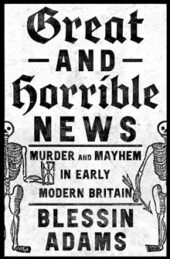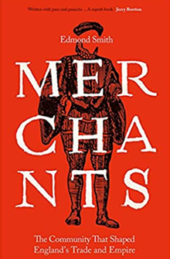William Ashby, ambassador and spy, is not a well-known historical figure. Indeed, so successful a secret agent was he that few today will have heard of him. To me, he has always been little more than a name, mentioned in biographies of King James (when Ashby, seeking to buy the Scottish king’s support against the Spanish Armada, made extravagant promises later denied by his sovereign, Queen Elizabeth). As such, in Elizabethan Secret Agent, biographer Timothy Ashby has been able to provide that rare thing: an unknown story from a well known period.
The author’s surname is no happy coincidence; Timothy Ashby is in fact distantly related to the historical William. This personal connection – though Timothy is wise enough not to make too much of it – is evident in the freshness and vibrancy of the narrative. Written partly in a novelistic style, the text is interspersed with sections of creative non-fiction which follow exploits from William’s colourful life: riding into the Low Countries, repelling Spanish attackers with swords and pistols, and picking his way past the doxies and cutthroats of London’s seedier districts, his mind full of books as he makes his way to visit the spymaster Francis Walsingham. Here, the author’s literary credentials come to the fore. The lively style creates a sense of immediacy, with these sections – which read like extracts from a first-rate spy thriller – bringing Ashby and his world to life.
Thematically, Elizabethan Secret Agent emphasises the social and kinship networks on which Francis Walsingham’s complex spy ring was built. In exploring Elizabethan ‘spiery’, the author makes clear the link between intelligence services – and their spymasters – and diplomatic detail. Here was a world in which gentlemen spies rubbed shoulders and shared beds with – and were occasionally imprisoned by – sinister soldiers and dangerous enemy agents.
Drawing on contemporary sources, Timothy Ashby pieces together a narrative in which diplomats and spies (these being hats sometimes worn by the same individuals) were engaged in life-or-death struggles for faith and national fortunes. Their lives were hazardous, and even talented and loyal men were at the mercy of imperious, vacillating or reckless royal masters. In laying out his ancestor’s life, Ashby provides what is definitively British history (rather than, as is too often the case, simply English history with other nations included when they impact on an Anglocentric narrative). Yet, crucially, he places British history within a European context. As William Ashby’s life demonstrates, Scotland and England were continental players, often in the teeth of Elizabeth’s non-interventionist preferences.
This captivating treat of a book will enthral even seasoned fans of Tudor history, not just for its rollicking style but for its attention to period detail – to the everyday experiences of gentlemen spies leading dangerous lives dictated by mercurial sovereigns, who had little interest in what they deemed grubby if necessary activities. William Ashby might not be well known (even to aficionados of Elizabeth’s reign), but as Timothy Ashby skilfully demonstrates, he ought to be.
Steven Veerapen is a historian, novelist and academic of the Tudor period, and author of Of Blood Descended.







